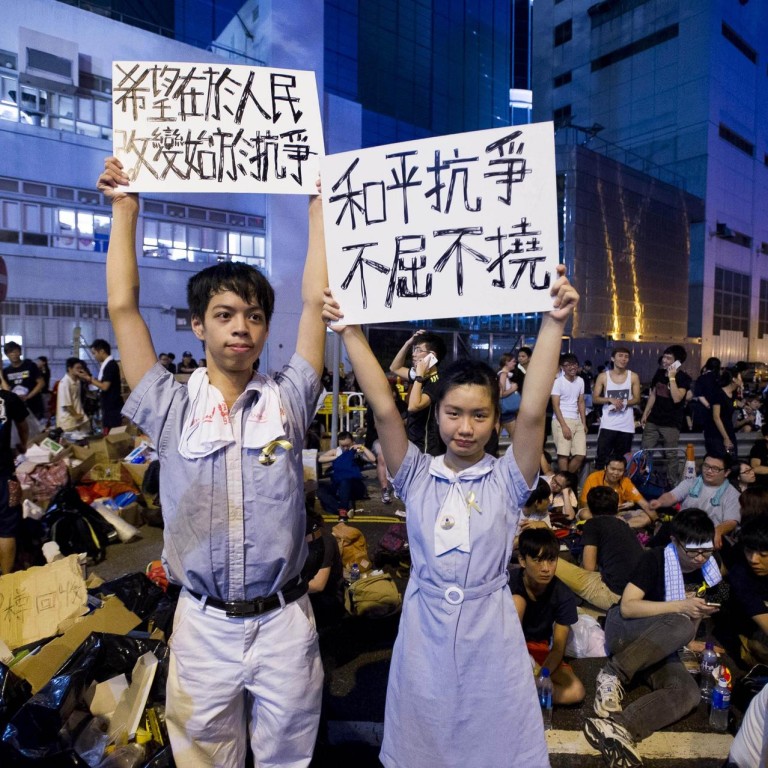
Youth seize the day during Hong Kong's pro-democracy protests
Regardless of the outcome from the mass protests in the streets of Causeway Bay, Admiralty and Mong Kok, Hong Kong should be proud to see the fruits of successful civic education.
It's two weeks since university students began class boycotts, joined later by secondary school students who, wearing uniforms, showed up in their thousands at rallies outside government headquarters calling for a free and fair election system in the city.
Many more returned to the scene, angered by the arrest of student leader Joshua Wong Chi-fung the night before for breaking into a cordoned-off zone outside the headquarters.
The dramatic events of the following week will go down in history as a remarkable, defining period.
Conscientious, undeterred young people were the backbone of the spontaneous movement. Radical and naive, some may say. Naive, of course, just as many in their 30s or 40s are. But their devotion to the fight for democracy has touched the hearts of many.
It is not the charisma of the 17-year-old Wong, who was subsequently released, that motivated people of various ages to take to the streets. The boldness and sharp wit of the first-year Open University student must have inspired many, but he alone could not have driven the mass movement.
Rather our young generation is clearly inculcated with the modern values of justice, liberty, equality and peace. Impressively, they also displayed strong civic-mindedness, with their good order and discipline and by keeping the protest zones clean. Some sorted recyclable rubbish. Rather than growing impatient in the sweltering heat, they stood shoulder to shoulder with others with the same resolve. A festive atmosphere prevailed, rain or shine.
On university campuses, banners pledging support for democracy and class boycotts were put up in conspicuous locations, as students from more than 100 secondary schools also skipped lessons. These students didn't miss much by not showing up for class.
Outside government headquarters, students had listened to lectures on inspiring topics such as Christianity and democracy delivered by professors and teachers. The open lectures could be seen as furthering the students' general education, which is now part of the curriculum at all universities.
Hong Kong has seen that being complacent is not acceptable to the future pillars of our society
Our youth has already learned the valuable lesson of being a citizen, speaking out for the benefit of the society when the need arises. Complacency is not acceptable to the future pillars of our society.
Hong Kong, an international city with a free flow of information, has fostered civic education, which is regarded by many as part of global citizenship. Such universal values as fairness and equality need to be understood and supported to contribute to the wider world.
The success of civic education here implies a lesser need for national education. Academics have argued the two are intertwined anyway. In the Hong Kong context, particularly, the latter is commonly seen as mere political indoctrination.
A friend of mine with two young daughters was hesitant about enrolling his five-year-old in a famous aided primary school, fearing the introduction of national education. Eventually he decided to apply to that school and a direct subsidy scheme school.
Yet should national education be implemented, it will certainly lead to an exodus of parents into the private sector.
